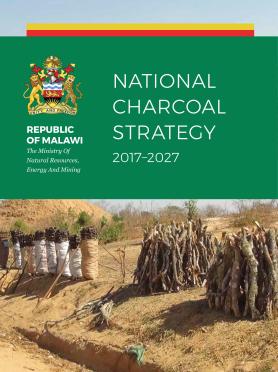Malawi National Charcoal Strategy
Malawi National Charcoal Strategy
More than 97% of Malawian households use charcoal or firewood for cooking and heating, making Malawi one of the most biomass energy-dependent countries in the world. In Malawi’s rapidly-growing urban centers, biomass energy remains the primary cooking and heating fuel for 88% of the population, and charcoal is now the primary source of fuel for the majority (54%) of urban households. Across rural Malawi, households continue to rely almost exclusively on firewood. While efforts are currently underway to upgrade the hydroelectric power generating capacity and expand the electricity distribution network, the percentage of households using electricity for cooking actually decreased between 1998 and 2012, and again between 2012 and 2014. Alternative cooking and heating fuels remain underdeveloped, with less than 1% of Malawian households using any alternative to firewood, charcoal or electricity for cooking and heating.
In the medium-term, as Malawi’s population continues to grow and to migrate to urban centers, the demand for charcoal and firewood will remain high and may even increase in the absence of viable alternatives. In this context, the question facing our country is how can we best meet and sustain our essential household energy needs? The NCS was developed in response to this question, and recognizes that there is no single solution to the complex and linked problems of energy demand and deforestation.

